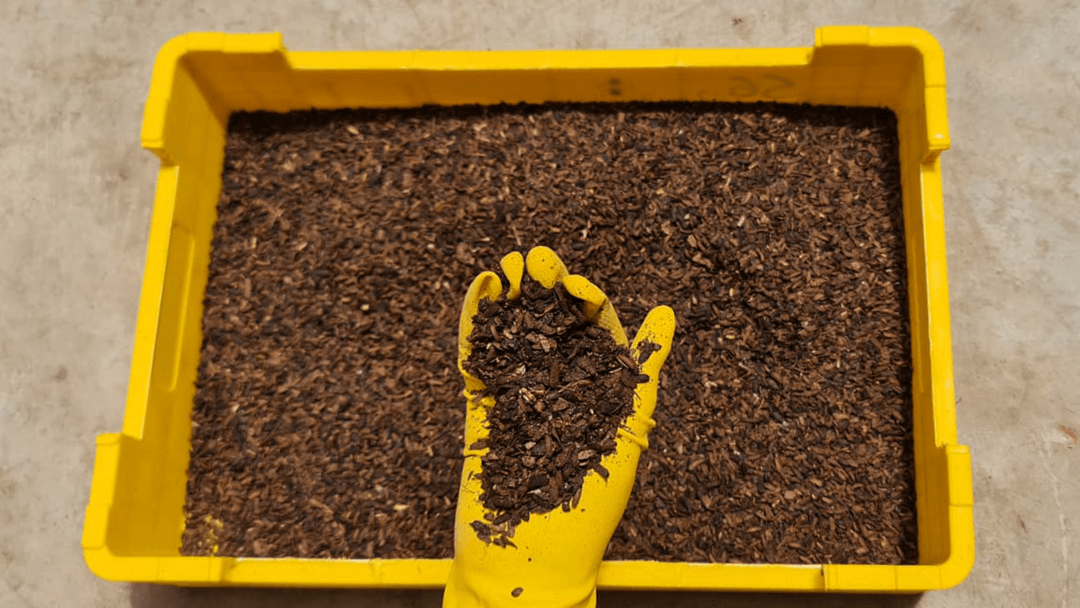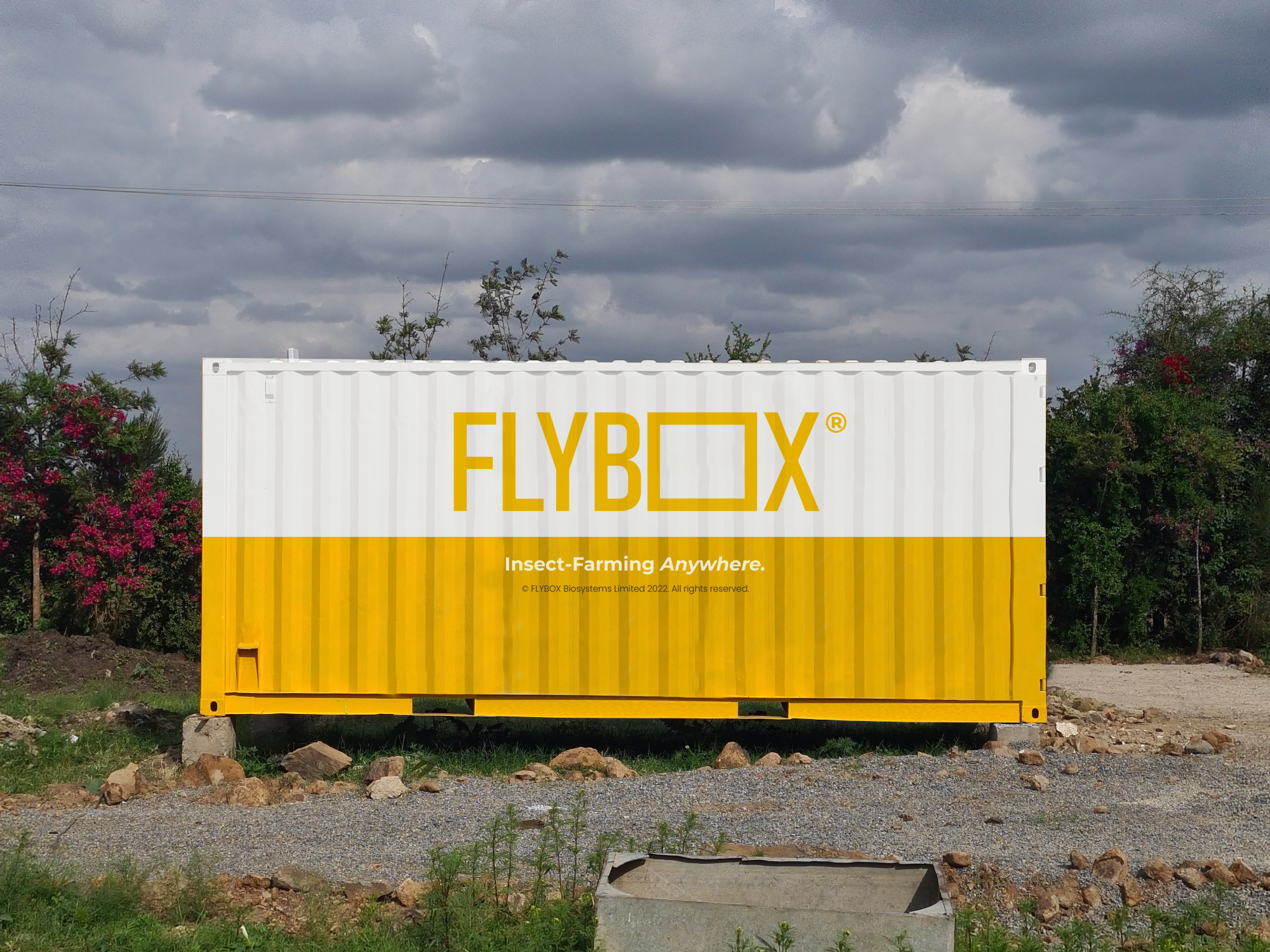My name is Larry Kotch and I am the Chief Commercial Officer at Flybox.
I became involved in this space at university; I studied waste management and insect farming. Afterward, I ran another company, which I grew and exited about four years ago.
I had several conversations with colleagues, and we thought that the company would be a great investment to make. We looked at the market, took our position in it, and began our commercial journey.
Describing a sustainable food chain and defining sustainability is a complex task, as there are various perspectives to consider. For instance, some argue that the need for food subsidies indicates a lack of financial sustainability. On the other hand, completely eliminating meat from our diet might not be nutritionally sustainable. Additionally, practices like free-range farming, while seemingly beneficial for animal welfare, can have negative environmental impacts due to increased energy-intensive processes.
The term "sustainable food system" can vary depending on one's definition. To simplify it, we could ask: "What makes a food chain more efficient?" or "What steps can we take to address some of the issues caused by our current food system, which is critical for billions of people?"
One possible solution is limiting meat production to non-arable or grazing lands, which would require reducing overall meat consumption as a society. Arable land should be dedicated to growing crops that efficiently convert solar energy into calories directly consumed by humans, rather than being inefficiently converted to meat calories through animals.
Can we create the "perfect" farm? - Brent Loken
© TED-eD/YouTube.com
Ensuring the upcycling of organic waste back to nutrients is crucial, and innovations like Flybox and other waste-to-value technologies play a significant role here. Additionally, producing food locally, whenever feasible, helps reduce emissions associated with food transportation.
At present, there are obstacles to implementing these changes. The developed world consumes too much meat, while the developing world doesn't consume enough. Moreover, there is untapped arable land in the Global South, and we struggle to recycle organic waste effectively.
However, positive changes are on the horizon, with legislation planned for 2025 in the UK to improve organic waste recycling. Separating organic waste from plastics and household waste will support initiatives like insect farms and anaerobic digesters that upcycle nutrients for the food system. This will also create organic fertilizer, which is necessary for repairing soil quality.
To move towards a sustainable food system, we must advance agricultural methods technologically. This includes adopting more intensive agricultural practices and incorporating planet-friendly inputs such as insect and alternative protein-based feeds, as well as organic fertilizers and digestates.
Ultimately, achieving a more efficient food chain requires us to develop low-cost calories and high-quality nutrition while bioengineering nature recycles its waste and minimizes emissions. This involves striking a balance between environmental considerations, animal welfare, and nutritional needs as we progress toward a more sustainable food future.
 Frass Fertilizer Output. © Flybox
Frass Fertilizer Output. © Flybox
One issue that the company highlights on its website is the current ‘protein crunch’. How much of a problem is this extra demand for protein?
We have noticed that over time, there is an increased demand for protein to match growing populations. We currently get most of our protein from soy or fish meal, which we call traditional proteins. The vast majority of this is soy comes from Brazil; in fact, one of the biggest drivers of deforestation in the Amazon is soy. Although lots of companies can source protein responsibly, all you need is 20% of that supply to be irresponsibly sourced to start taking down more and more vegetation.
How do the company’s Flybox modules, such as Flybox® Grow, work?
Flybox is an insect technology company. Fundamentally, we help food businesses to enter this space and to build their own insect farm.
If you have a lot of waste, consume a lot of protein as part of your livestock farm, or have a lot of food processing, building a system that can sustainably deal with that can be challenging. It has to be bespoke, requires consultants and has a big price tag – certainly in the Global North.
Flybox hopes to address this problem by empowering people with the right tools.
We are developing a suite of Flybox modules that deal with the whole insect farm, from breeding, nursery, growing, and waste processing, to product processing.
The Flybox modules can be arranged in different configurations to suit any process and product specification.
Flybox Grow is our flagship module. It deals with larvae at the seedling stage that quickly eat through large amounts of organic waste every ten days and turn it into Frass fertilizer and feed.
Flybox Grow gives people an on-farm or on-site solution to dealing with their organic waste, reducing the need for external processing and cutting waste disposal costs. Even better, for certain people, the products that come out of the Flybox Grow can be integrated into their own supply chain; they can use the waste from their farm to produce feed for their own animals.
The Flybox Grow is ready to go today, with seedlings available on a subscription.
How does Flybox Grow sit within the broader market?
We have seen a large demand for large-scale modules across the industry, whereas we, amongst others, are focusing on the SME market with ready-to-go on-site solutions at a smaller scale.
In terms of our own operations, we are also focused on the Global South, where there is not the infrastructure or skill sets to have automated factories. Something more modular and off-grid with low infrastructure, such as the Flybox Grow, is much more suitable.
 Flybox Grow® in Nairobi, Kenya. © Flybox
Flybox Grow® in Nairobi, Kenya. © Flybox
Could you discuss some case studies of Flybox® Grow’s use in the company’s operating countries?
In the UK, we are setting up for the first time we have been in R&D for three years. Currently, we are working with a commercial layer hen farmer in Buckinghamshire. It's about a four or five container system that's going to go into live insects that get fed back to the chickens.
So that's the UK. We are evaluating a number of use cases, two that are pretty serious that we want to have agreed, at least in principle, by the end of this year. And that will be two smaller farmers as well doing it in the UK. In Kenya, the main people we've been working with is the Kiambu government, which is a county right next to Nairobi, the capital, where they do most of the agriculture.
And that has been a system up in Kiambu that is dealing with farm waste and market waste. So there's lots of market waste in Africa that currently just is paid to take to the dumpsite. And we're turning that into a scheme, which then provides low-cost fertilizer and insects to local farmers. And so that's the idea with them the government is looking at this as a potential unlock to speed up farming, lower the cost of farming for smallholder farmers.
How difficult was the Flybox® Grow to develop? Did the team encounter any challenges in its design?
As mentioned, we have been in R&DS for the past three years. The main challenge we encountered was air circulation. We had to make sure that each individual insect is in a happy climate and not rely purely on a sensor to inform us of conditions. We had to innovate quite a bit to ensure that the air moves around efficiently in the Flybox® Grow, which is what our patent covers.
Flybox partners with several leading institutions like Innovate UK, HSBC, EU Horizons 2020 Programme and more; why is it so important for organizations to come together like this, and what benefits can it bring to start-ups/SMEs targeting key sustainability goals?
Personally, I count current issues like the climate crisis and changing food systems as existential risks - on par with global pandemics or asteroid hits. I think that there could be more investment in R&D, with several options on where that investment comes from, from the government, as we can see that most larger corporations are not willing to fully invest yet. Most people are thinking in terms of the next business cycle; they're not thinking in terms of 100 years, which is what many sustainability initiatives need
Innovate UK, KTN, and the EU Horizons program, however, are doing just that, which is fantastic. Their efforts are sending signals to the wider industry, showing them that these investments should be taken seriously as they are aligned with governmental organizations.
What are the next steps for Flybox? Are there any developments that the company is working towards?
Our three products are the Flybox Breed, the Flybox Hatch and the Flybox Grow, all of which can be configured into many different farm operations. In the UK specifically, we are focussing on our first demonstrator farm with a commercial layer hen farmer in Buckinghamshire. For the wider European market, legislation is the main barrier and many others in insect farming.
We are trying to ensure that over the next 18 months all of our existing projects go really well and that our smaller case studies run successfully. We are also raising an investment round at the moment that will hopefully close by the end of the year.
Insect Farming: In Conversation With Flybox®
AZoTV/YouTube.com
About Larry Kotch
 Larry is an entrepreneur based in London and the Ivory Coast. He has successfully built a seven-figure marketing business. He studied Environmental Science and Philosophy at Oxford and York University and has managed his own Black-Soldier Fly colony since 2019. He’s lived in Kenya, South Africa and the Ivory Coast.
Larry is an entrepreneur based in London and the Ivory Coast. He has successfully built a seven-figure marketing business. He studied Environmental Science and Philosophy at Oxford and York University and has managed his own Black-Soldier Fly colony since 2019. He’s lived in Kenya, South Africa and the Ivory Coast.